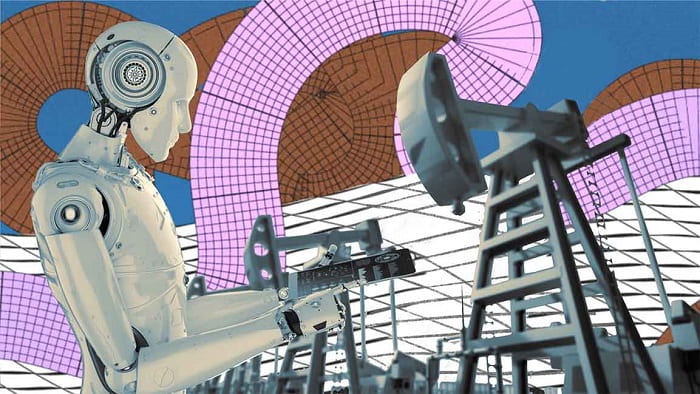By increasing maintenance and repair, efficiency of production, and safety tracking, robotics and automation have prominently helped in the development of the oil and gas sector, says Preston’s Arif Patel. The elevated automation tech of robotics has gone on to widely impact the oil and gas sector’s output, thereby making it more advanced as well as efficient.
It is well to be noted that since the start of the digital age, robotics has gone on to play a key role in the oil and gas industry. Progressing digitalization and AI integration, as well as cloud computing and the IoT, have aided in diversifying robot use cases within the industry. Arif considers this a pretty optimistic transformation that enhances safety, efficiency, and productivity across the oil and gas sectors.
The GlobalData research stresses the increasing use of robotics within the oil and gas sector, pushing its variety of use cases as well as digitalization.
What are the roles played by Automation and Robotics in the Oil and Gas sector today?
Optimised components can be incorporated into automated systems and robotics for use within oil and gas locations so as to facilitate numerous tasks such as:
Upkeep as well as Monitoring
Robotic systems are employed to monitor and maintain elements such as pipelines, wellheads, and other machinery. Here, the use of automated technology allows for more frequent and thorough inspections while at the same time reducing the requirement for human personnel to enter situations that are potentially dangerous. As per Arif, robotics technology helps the oil and gas sectors automate activities pertaining to drilling, and it also goes on to play a key role in surveys, construction, material handling, inspection, maintenance, and repair.
Exploration
Unmanned aerial vehicles as well as underwater autonomous vehicles, which happen to be automated systems, are used for surveying and also mapping oil and gas reserves. These vehicles can have access to challenging locations and go on to deliver more precise data vis-à-vis to traditional methods. This data plays a major role in impacting productivity when it comes to the oil and gas sector.
Production
Across the oil and gas facilities, automation is also used so as to regulate and keep an eye on the process of production. This has the effect of regulating the flow of oil and gas and also maximising the effectiveness of production by way of utilising the sensors as well as the control systems. Arif Patel, having started the company at an early age in Dubai, rose to prominence across production, mining, and oil and gas exploration fields. Apparently, Preston happens to specialise in engineering, mining, oilfield services, exploration, and the production of oil and gas.
Safety
Robotics as well as automation, which happen to be the most common employment causes, are important for elevating safety standards across the sector. In order to reduce injuries to workers, robots can be deployed so as to carry out duties such as gas detection and fire suppression.
Milestones across oil and gas robotics
Arif, who happens to have worked in the sector for many years, has a strong opinion on the development as well as expansion of the oil and gas industry and has a belief in the fact that robotics in this sector can for sure go on to enhance and also upgrade the conditions related to production and regulation. It will, therefore, also lead to operations that are optimised, lessen downtime, and increase safety. Robotics and automation are likely to be used more commonly in the oil and gas spectrum so as to elevate efficiency, production, and safety. Robotic applications have started to become very common, all thanks to digitalization development, AI, IoT, and cloud computing. Numerous kinds, such as aerial drones, autonomous underwater vehicles, quadrupeds, land crawlers, and remotely operated vehicles, are anticipated to q quicklyincrease. It is well worth noting that this sector will benefit significantly from advanced robotics technology, and the energy sector by all means must effectively make use of such technology so as to improve output. Arif says that companies should be aware of the possibilities and enhancement of businesses with robotic technology.
Conclusion
By helping robotics adoption in the oil and gas sector, data and robotics are sure to upgrade insight. Robotics tech will enhance productivity and, at the same time go on to play a very important role when it comes to reducing the carbon footprint.
As per Arif Patel, robotic technology will help oil and gas sectors in terms of asset management, drilling well design, enhanced exploration, and emission and detection tracking, all of which shall lead to increased productivity and optimised outcomes. Enhanced safety, teamed with efficiency and higher productivity, is what robotic technology has to offer across the oil and gas sector internationally.





































